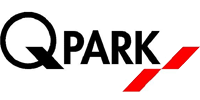
Paid parking evokes strong emotions
Paying for parking is always a hot item, and emotions often run high, especially when parking tariffs increase. As a motorist, you may feel at the mercy of a market that is by no means transparent. At the same time it is clear, to public and private landlords, that proper parking policies make a tremendous contribution, not only to the liveability in cities, but also to their accessibility.
Many motorists consider parking too expensive. And one of the reasons for this is that local councils rarely substantiate their parking tariff choices and neither do they communicate the problems of free parking, or the successes of paid parking.
Parking tariffs are usually determined by:
- the need to cover costs;
- an outcome of political negotiations; or
- what neighbouring cities charge.
Transparently chosen parking tariffs are very scarce. Is there a more rational method for determining parking tariffs which is easy to communicate and benefits municipalities, the parking industry and last but not least, a city's residents and visitors?
We think there is.
An economic approach to setting parking tariffs
Central in the economic approach is the parking tariff that takes account of the maximum benefit to society. This arises if people choose the right parking space based on the parking tariff:
- A low tariff is not ideal because it will attract too many cars and there will be no vaacant parking spaces left;
- A tariff that is too high will mean that people stay away;
- The ideal tariff is based on attractiveness of the area. The more attractive, the higher the tariff.
The advantage of an economic approach to a parking tariff is that this can easily be explained. Questions to ask:
- Is the current parking tariff in proportion to the economic performance of the neighbourhood?
- Could an adjustment to the tariff help the area improve its performance?
- Are there enough parking spaces, and if not, can demand be muted with higher tariffs and/or would it make sense to invest in more public transport or more parking capacity?
- To what extent can greater differentiation in tariffs help to distribute the pressure on parking more evenly?
About Q-Park
Q-Park is an international parking company, focused on value development by providing high-quality services in purpose-built parking facilities and off-street parking at strategic locations. Q-Park's activities focus on providing services related to parking at targeted locations: in or near multifunctional inner-city areas, at public transport interchanges and at hospitals. We supply services that fulfil customers’ demands, and their need for convenience, reliability and hospitality.







